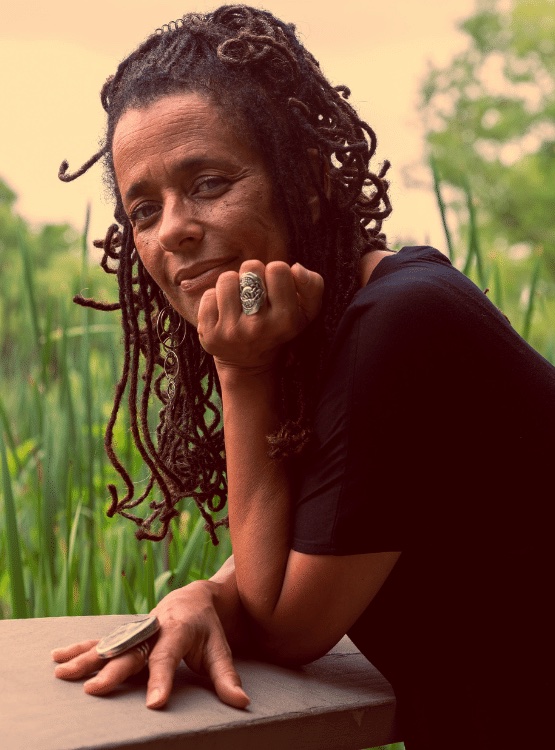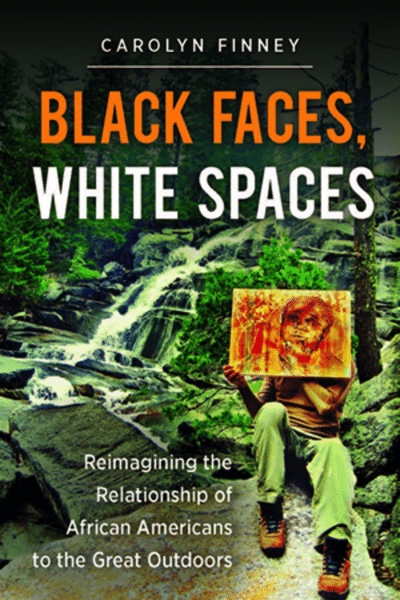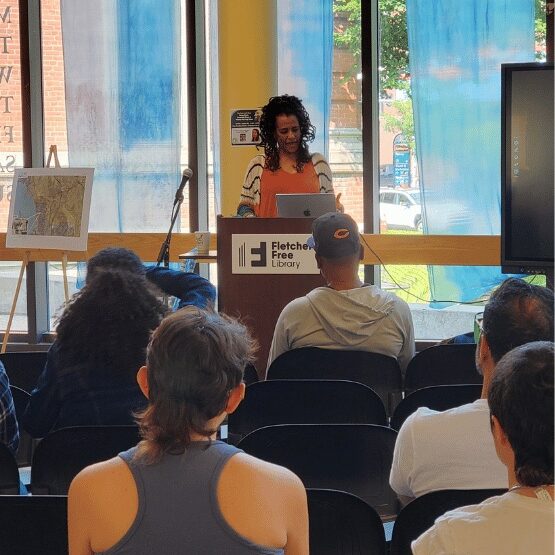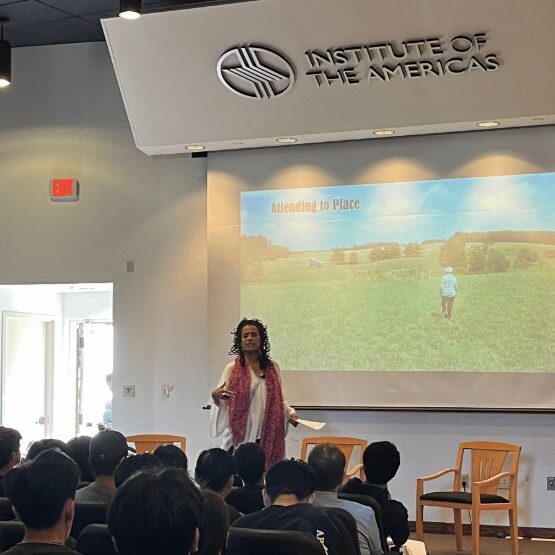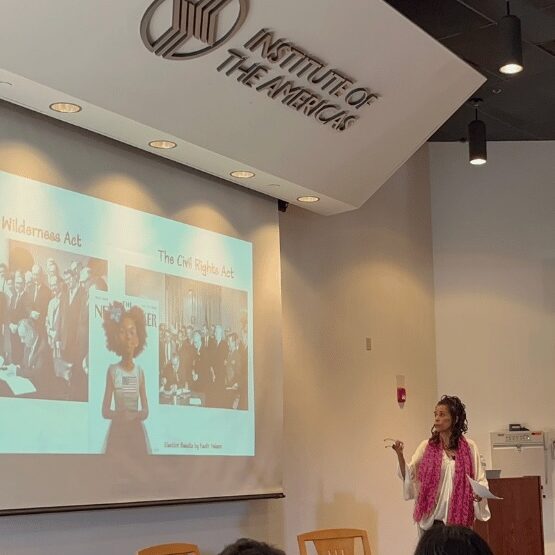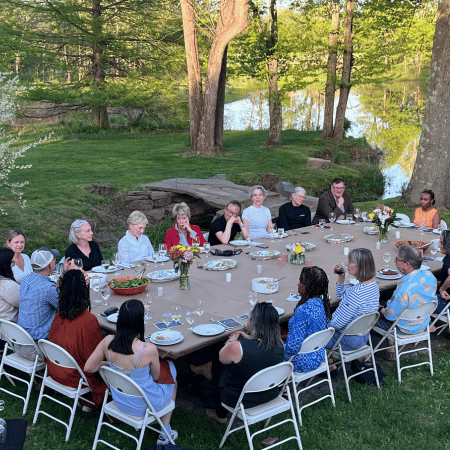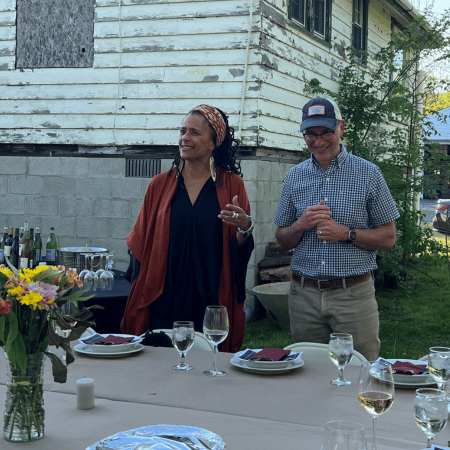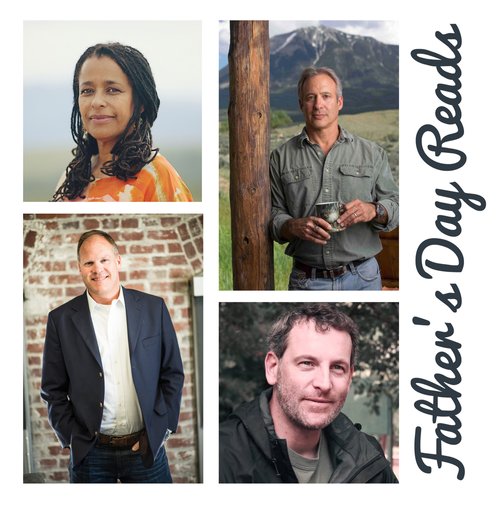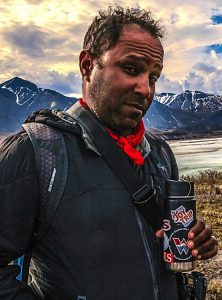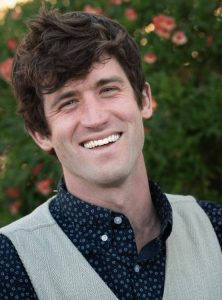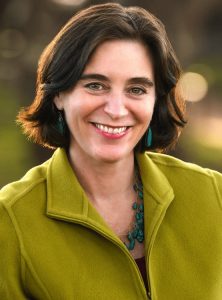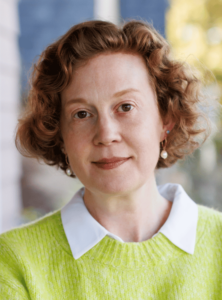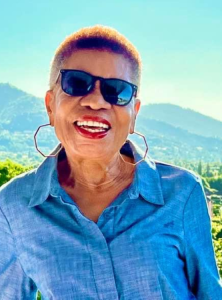Carolyn Finney, PhD is a storyteller, author and a cultural geographer who is passionate about interrogating our past and dreaming a future that is liberatory, just and green. Dr. Finney is grounded in both artistic and intellectual ways of knowing – she pursued an acting career for eleven years, but five years of backpacking trips through Africa and Asia and living in Nepal changed the course of her life. Motivated by these experiences, Carolyn returned to school after a 15-year absence to complete a B.A., M.A. (gender and environmental issues in Kenya and Nepal), and a Ph.D. in Geography at Clark University (where she was a Fulbright and a Canon National Science Scholar Fellow). Along with public speaking (nationally & internationally), writing, media engagements, consulting & teaching (she has held positions at Wellesley College, the University of California, Berkeley & the University of Kentucky), she served on the U.S. National Parks Advisory Board for eight years under the Obama Administration. Her first book, Black Faces, White Spaces: Reimagining the Relationship of African Americans to the Great Outdoors was released in 2014. Recent publications include “Radical Presence – the Shadows Take Shape: African Americans (Re)making a Green World” in Not Just Green, Not Just White: Race, Justice and Environmental History (edited by Mary Mendoza and Traci Brynne Voyles, University of Nebraska Press, 2025);“Memory Divine” in A Darker Wilderness: Black Nature Writing from Soil to Stars (edited by Erin Sharkey, Milkweed Press, Feb. 2023); “Joy is a Revelation” in Nature Swagger: Stories and Visions of Black Joy in the Outdoors (edited by Rue Mapp, Chronicle Books, Oct. 2022); Self-Evident: Reflections on the Invisibility of Black Bodies in Environmental Histories (BESIDE Magazine, Montreal Spring 2020); The Perils of Being Black in Public: We are all Christian Cooper and George Floyd (The Guardian, June 3rd 2020); and Who Gets Left Out of the Great Outdoors Story? (The NY Times November 4, 2021).
She is currently working on her new book (creative non-fiction) that takes a more personal journey into the very complicated relationship between race, land & belonging in the United States, and a performance piece entitled The N Word: Nature Revisited as part of an Andrew W. Mellon residency at the New York Botanical Gardens Humanities Institute. She is involved with a number of documentary film projects; her family’s story appears in the HBO documentary, Trees and Other Entanglements in Fall of 2023 (Vermilion Films). She recently completed a three-year stint as a columnist at the Earth Island Journal and was awarded the Alexander and Ilse Melamid Medal from the American Geographical Society in 2022. Carolyn is currently a scholar/artist-in-residence in the Franklin Environmental Center at Middlebury College.
